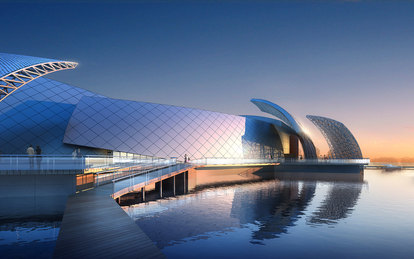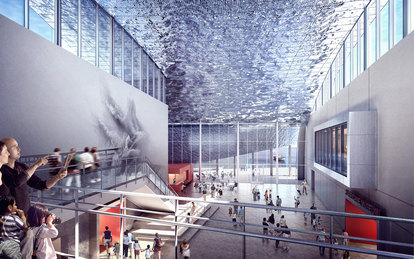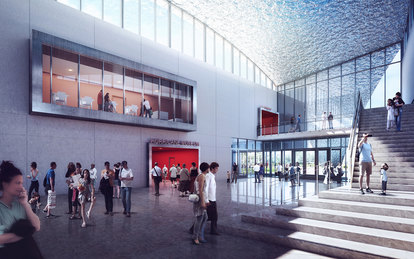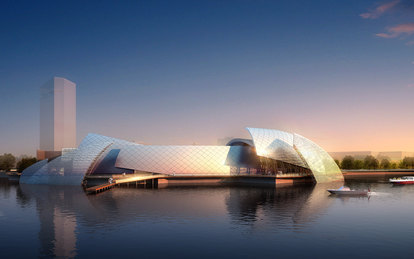National Hurricane Museum and Science Center
The National Hurricane Museum and Science Center memorializes the lives lost during the particularly brutal 1957 Hurricane Audrey, while also educating visitors on the power and impact of these storms. Remembrance, loss, and resilience are key themes communicated in the design.
Client
Southwest Louisiana Convention & Visitors Bureau
Location
Lake Charles, Louisiana
Markets/Services
Architecture, Civil Engineering, Coastal Engineering, Cultural, Cultural Landscapes, Interiors, Landscape Architecture, Lighting Design, Museums & Galleries, Programming, Structural Engineering
Size
50,000 SF
Featured Awards
Progressive Architecture (P/A) Award (International), ARCHITECT, 2012
Over the years, Louisiana has been hit violently by hurricanes. Rains have come; the tides of the Gulf have risen; and towns, homes, and lives have been destroyed. The resilience of the region’s residents is undisputed: people settle, live, experience the detriment of these catastrophic storms, and then pick up the pieces, only to encounter a similar rendition of the same events years later. Again, pieces are picked back up, and homes are rebuilt.
One storm weighed heavily on the minds of several of the state’s stakeholders. Hurricane Audrey hit Cameron, Louisiana in 1957, and took 550 lives as it swept Louisiana’s southwestern tip. As one of the country’s most horrific tropical cyclones, the storm decimated the city.
These stakeholders, united under the Southwest Louisiana Convention and Travel Bureau, wanted to memorialize this tragic event, while also educating people on hurricanes — their impact, legacy, and role in Louisianan life and culture.
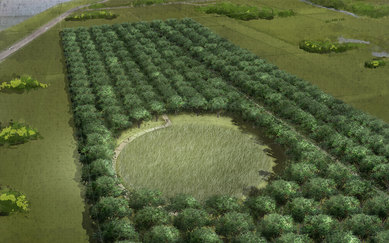
Memorial site
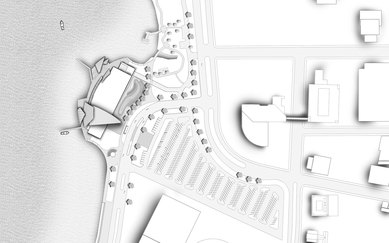
Site Plan
Asked to design of the memorial and museum, our team knew the responsibility that this project would bear. It would need to be poetic, communicating loss and remembrance, while also maintaining an ability to teach.
Oak trees had become a symbol of strength in the community. Residents saw the surviving oak trees from the hurricane as a reflection of their homeland. The memorial design is centered on these oaks, incorporating over 550 live oaks for each life lost during Audrey.
The museum design is based on water, and the building form of sleek metal curvilinear structures express cresting waves and the irrepressible power of this weather phenomenon. Inside, visitors will virtually experience the impact of these natural forces through interactive exhibits, displays, and accounts of past events that relate both tragedy and triumph.
Inspired by the treacherous storms, and simultaneously built to withstand these same natural beasts, the National Hurricane Museum and Science Center, when completed, will be an emblem of loss, remembrance, and endurance.
